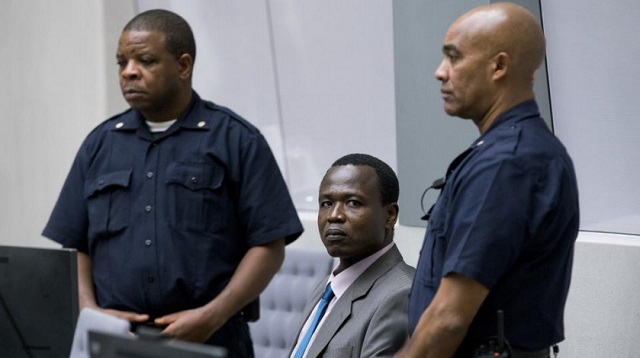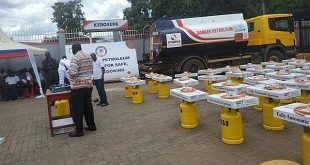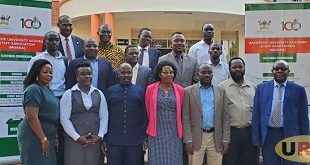
Gulu, Uganda | THE INDEPENDENT | The registration of victims in the case of Dominic Ongwen will start in January 2025. This is in fulfilment of the implementation of the repartition order issued by the International Criminal Court.
On February 28, 2024, the Trial Chamber IX issued an order for reparations against Dominic Ongwen ordering collective community-based reparation focusing on rehabilitations, a symbolic payment and satisfaction measures for both direct and indirect victims with a liability of 52,429,000 million euros.
The Court directed the Trust Fund for Victims to develop a draft implementation plan for reparation. Consultations to that effect were done in Northern Uganda from April 2024 to June involving 2,715 people with 60% of the participants being victims.
A sample of eligible victims of 438 from Aboke were reached out, Lukodi 421, Odek 423, Pajule 1,182 as well as Gulu with 251 participants.
On September 3, 2024, after the consultations, the Trust Fund for Victims submitted to the Trial Chamber II a draft implementation plan for the reparations.
The Trust Fund for Victims Consultant Martin Okwir disclosed in a recent interview that the registration will commence in January 2025 to establish the number of eligible victims.
Okwir revealed that the Focal Point Persons have already been trained to handle the process of registration which is expected to be completed in two years.
He highlighted that, while the Court is yet to approve a plan for the implementation of reparation programs, The Trust Fund for Victims is already engaging the victims to begin the process of opening up their bank accounts and mobile money numbers through which their compensation money will be wired to once the resources are mobilized and implementation begins.
“The court won’t make any mistake to hand them physical cash . This is for their safety because it’s easy for them to even lose their money but for those who may not have, it will be decided whether their payments can come through their closest relatives or other third parties ” Okwir further explained.
Okwir further noted that, for victims who may not have proper documentation for national identification including children born in captivity, the reparation team will see how to handle them.
“The two years is enough for even those who don’t have their own bank accounts or mobile money accounts to have got them because this will help with accountability of funds released” He added.
The International Criminal Court is already engaging the State Parties to mobilize the fund for reparation which is established under Article 75 of the Rome Statute.
The Court had been running temporary assistance covering about 70,000 people under the Trust Fund for Victims which will end in April 2025 from where the reparations will pick from.
“The temporary assistance program covers anybody in the conflict situation within the context of Northern Uganda. It might be that you were armed by the UPDF, this will even cover you” He added.
The International Criminal Court (ICC) Outreach Program Officer for Uganda Maria Kamara Mabinty has however expressed concern about the management of expectations from survivors.
She noted that while the judicial process may take a long period to come, the number of people turning up for the community meetings is doubling, justifying a huge concern in managing such a situation.
“We used to meet between 200 to 300 people in our community meeting on one case location but now we are getting over 800 people and the number keeps increasing” Okwir observed.
Once the International has secured funds from its State Parties, Okwir noted that the reparation programs will commence in phases, although the Court has yet to announce itself on the draft implementation plan submitted.
The first tier of compensation will cover victims in critical health conditions and those in advanced ages described as the most vulnerable category.
The second group of victims are those who are badly off but not the most vulnerable and they include the 4009 people who participated in the trial.
He highlighted that the majority of the victims will fall in the third tier involving those who are not the worst or not so vulnerable.
The last group of people to be compensated are those who were affected by the war but they have continued with their normal life after the war, projected to be about 2,000.
The Ugandan child turned soldier Dominic Ongwen was found guilty of 61 counts comprising crimes against humanity and war crimes committed in Northern Uganda between 1 July 2002 and 31 December 2005 on May 21 by the International Criminal Court and sentenced to 25 years.
***
URN
 The Independent Uganda: You get the Truth we Pay the Price
The Independent Uganda: You get the Truth we Pay the Price



